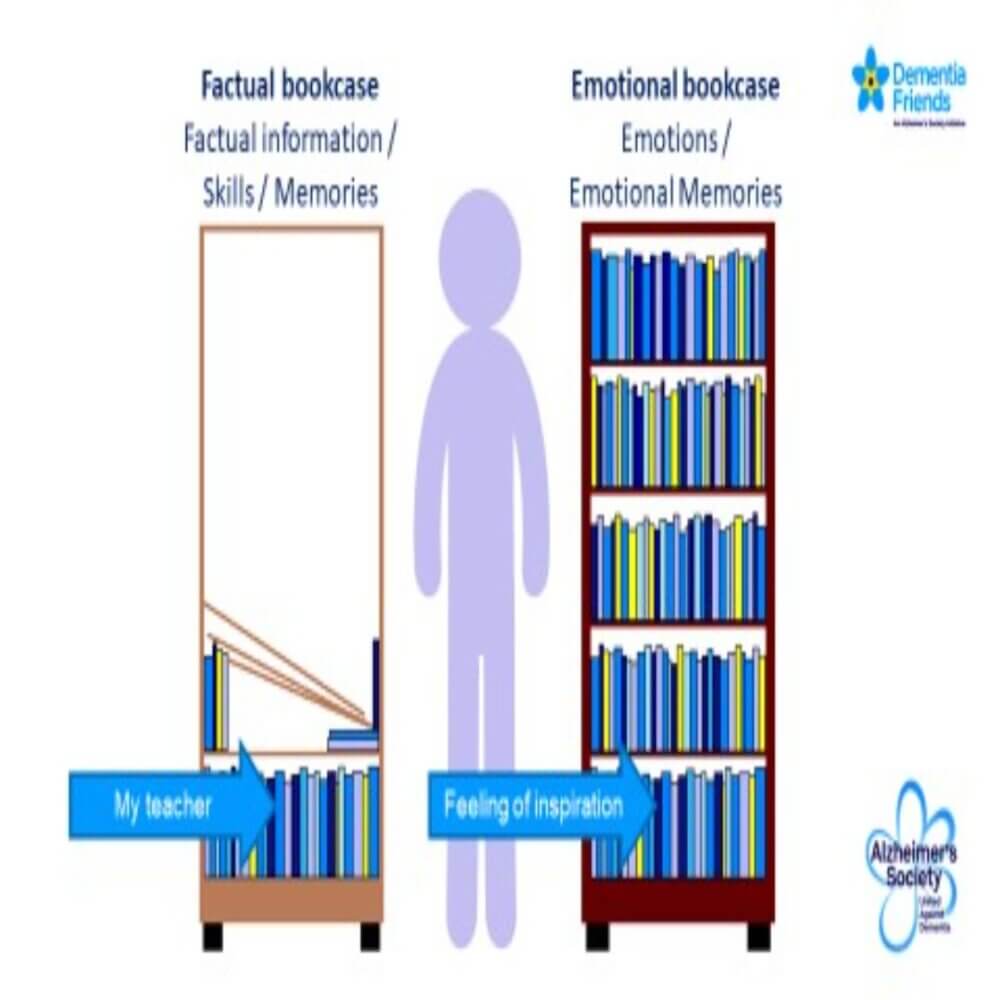The Bookcase Analogy
It can be challenging to understand how dementia affects the mind of a loved one, and how it affects what they remember about their life. The Book Case Analogy may help.
Flimsy and Solid Book Case
The Bookcase Analogy, developed by the Alzheimer’s Society for the Dementia Friends programme, is an excellent way of describing what happens to memories, facts, and the emotions of someone living with dementia.
Imagine there are two bookcases; the first bookcase is filled with short-term memories, facts and long-term memories, all the things that have been learned and experienced in a lifetime. This bookcase is quite flimsy. So even a minor knock can cause books to fall, usually the ones on the top shelf that have short-term memories. This is why people with dementia find it easier to recall their long-term memory because those books are still on their bookcases.
Dementia symptoms may include problems with:
Memory problems, thinking speed, mental sharpness, and language. For example, using words incorrectly, or having trouble speaking and problem-solving. As well as understanding judgement, mood swings, and having difficulties with movement while doing daily activities.
After a dementia diagnosis, disease progression can vary widely. But as the disease does progress you’ll want to understand how your loved one is feeling and what they are experiencing.
The symptoms of dementia will become worse over time. If we refer to the bookcase analogy, it’ll help us understand the development of dementia and how dementia progresses.
The more this bookcase is knocked, the more books will topple. And if a person with dementia tries to put those books back, they may not necessarily put them on the right shelf.
So a fact that was meant to be on the long-term memory shelf ends up on the short-term memory shelf, causing confusion around when something happened in their life.
The second bookcase is filled with feelings and emotions, how an event, an experience, a person, or a place, made them feel. This bookcase is more solid. So even if it’s been knocked, the books won’t topple as easily as the first bookcase. This is because this part of the brain is much more resilient to the effects of dementia.
Now imagine that both of these bookcases are what make up the mind of a loved one living with dementia. They may not necessarily remember the facts of something that has happened, but they will remember how they felt at the time.
This is why it’s important to still spend time with them. Because even if they don’t remember the wonderful day you spent together and the familiar tasks they once enjoyed, they will remember the feelings and emotions connected to that.
There is always new research and things we can do to reduce the risk of mild cognitive impairment and dementia. People with dementia can still have a very fulfilling life. They might just need a little help to complete tasks and live independently.
